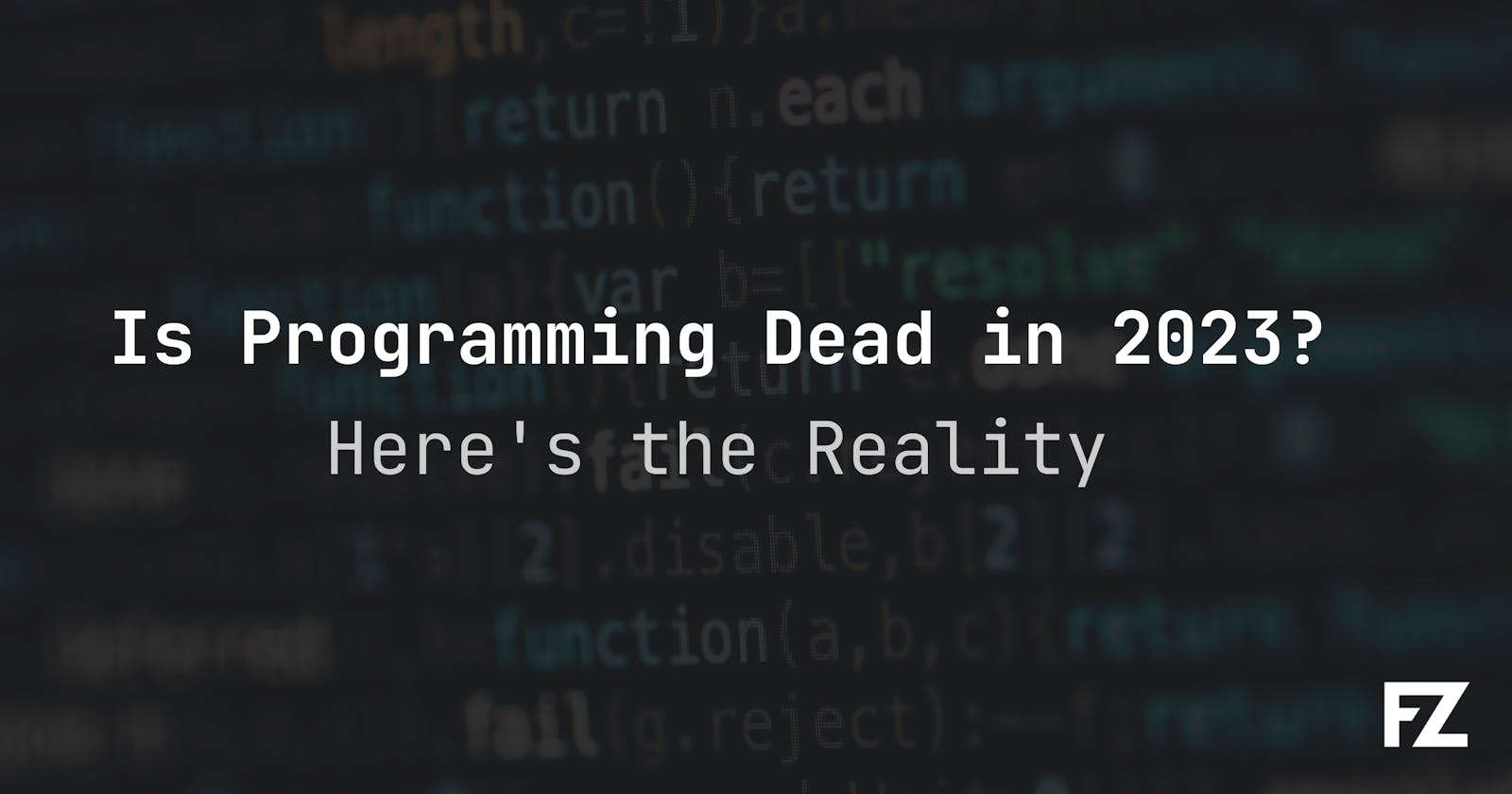As we navigate the digital terrain of 2023, the social media tech community has been asking: Is programming becoming obsolete? Rapid technological improvements have intensified this debate, leading to skepticism and anxiety about the future of programming. This article will analyze these debates to shed light on the realities of programming in 2023. Is it genuinely coming to an end, or is it simply adapting to fit the needs of our ever-changing digital world? Let's go exploring.
Is the demand still there?
Organizations across all industries are migrating to a digital-first approach in the contemporary digital era. This move has boosted the demand for qualified developers tremendously. As companies attempt to improve their digital presence and optimize their operations using technology, the demand for developers to construct and manage these digital platforms is more important than ever.
Developers are critical in building the digital infrastructure that allows firms to operate smoothly in the Internet world. Developers are at the vanguard of the digital transformation, from designing websites and mobile applications to complicated data analysis tools and applying cybersecurity precautions.
Furthermore, continuous technological breakthroughs such as artificial intelligence, machine learning, and blockchain have opened up new options for development, thereby further increasing the demand for specialized developers.
In conclusion, companies' reliance on a digital-first strategy has not only sustained but significantly increased demand for developers. Instead of becoming obsolete, programming is experiencing a boom in demand, making it a viable industry in 2023
Addressing the rumors vs. reality ...
The apparent "death" of programming has caused quite a stir in the computer industry. The fast breakthroughs in technology, notably in the fields of artificial intelligence (AI) and machine learning (ML), have fanned this notion. Some fear that the development of advanced AI models capable of generating code may soon lead to the replacement of human programmers.
However, the reality is far from this. While AI and machine learning have made significant advances in automating certain elements of coding, they are still far from rendering human programmers obsolete. In reality, the need for qualified programmers is increasing. The reason for this is straightforward: while AI can create code, it lacks the creativity, critical thinking, and problem-solving abilities that human programmers possess.
Furthermore, programming is more than just creating code (I go in-depth in this article). Understanding the problem, creating a solution, testing it, and then improving it based on the findings are all part of the process. These are chores that require human intervention.
So, while programming is changing as new technologies emerge, it is far from extinct. As we go farther into the digital era, the position of the coder becomes even more important.
Software needs to be maintained and upgraded to meet needs ...
Making a tool or a piece of software is only the beginning in the realm of programming. Even the most sophisticated instruments require routine maintenance, troubleshooting, and upgrading to guarantee that they continue to perform properly and remain relevant in a changing technological context.
Regular inspections and upgrades are performed to guarantee that the program is working smoothly. This might involve patching any security flaws in the program, upgrading the user interface for a better user experience, or optimizing the code for improved speed.
Another important part of programming is troubleshooting. Issues and defects can occur regardless of how well a piece of software is built. Programmers are critical in recognizing these problems, determining their fundamental cause, and implementing a remedy.
Upgrading is also a constant in the programming industry. With the quick speed of technical improvements, software must be updated regularly to include new features, remain compatible with other growing technologies, and satisfy the changing demands of users.
Finally, a programmer's job entails more than just creating code. It entails a continual cycle of maintenance, debugging, and updating, stressing programming's importance and relevance in 2023.
But what about the industry layoffs?
A succession of high-profile layoffs in the tech industry occurred in 2023, causing widespread alarm and speculation. Amazon, Google, Microsoft, and Salesforce have all announced large employment cutbacks. Approximately 106,950 individuals in the computer business lost their employment in January alone.
While these figures may appear concerning, it is critical to note that layoffs are not always a portent of a tech sector downturn. Layoffs can occur for a variety of reasons, such as organizational reorganization, changes in corporate strategy, or even as a reaction to global economic conditions.
Furthermore, despite these cutbacks, there is still a great need for tech specialists. The digital transformation wave has boosted the demand for skilled developers and IT professionals across various sectors.
As a result, while the recent layoffs are a big event in the computer sector, they do not portend the end of programming or the relevance of tech experts. Instead, they showcase the IT industry's dynamic and ever-changing character.
Conclusion
In conclusion, programming in 2023 is not dead, but alive and thriving. It continues to be an essential skill in our digital age, constantly evolving and adapting to new technologies and demands. So, for those considering a career in programming or questioning the longevity of their programming skills, rest assured. Programming isn’t going anywhere as of now. It’s here to stay, and it’s more exciting than ever.
Like and follow for more articles like this! Thanks for reading!
